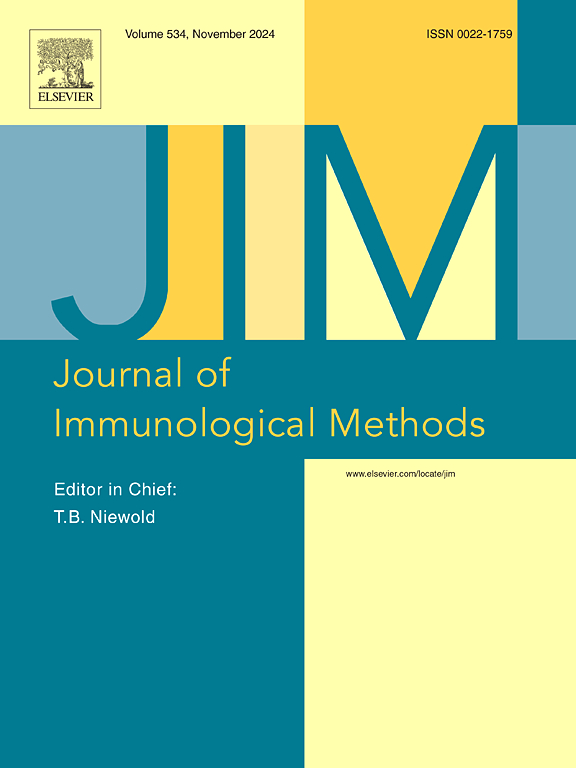An unexpected bioanalytical challenge caused by positive control antibodies in a clinical immunogenicity assay – A simple solution and broadly applicable recommendations
IF 1.6
4区 医学
Q4 BIOCHEMICAL RESEARCH METHODS
引用次数: 0
Abstract
Anti-drug antibody (ADA) assays are an important element in the suite of bioanalytical methods required for assessment of the safety and efficacy of recombinant-protein therapeutics. As such, and following extensive optimization, there is an expectation that clinical ADA assays be fully validated for multiple performance parameters, including sensitivity, specificity, reagent stability, and robustness. Among critical reagents used in ADA assays, ADA positive controls (PCs) play a crucial role in multiple stages of assay development and validation, including selection of assay format, establishing assay cut-points, estimating assay relative sensitivity, assessing assay precision, as well as ensuring acceptable assay performance during sample testing. This manuscript highlights an unexpected and highly-impactful PC performance inconsistency attribute we encountered prior to validation of a clinical ADA assay. We also describe the investigation that identified the root cause of this problem: the immune complexation between the murine monoclonal antibody used as the surrogate PC and human anti-mouse antibody present in the serum used to prepare the PC. We conclude that murine monoclonal antibodies are not fully appropriate reagents for use as PCs in clinical ADA assays. Finally, potential approaches to circumvent or mitigate this specific problem in clinical ADA assays are discussed.
临床免疫原性试验中由阳性对照抗体引起的意外生物分析挑战-一个简单的解决方案和广泛适用的建议。
抗药物抗体(ADA)检测是评估重组蛋白疗法安全性和有效性所需的整套生物分析方法中的重要组成部分。因此,经过广泛的优化,临床ADA分析有望在多个性能参数上得到充分验证,包括灵敏度、特异性、试剂稳定性和鲁棒性。在ADA检测中使用的关键试剂中,ADA阳性对照(PCs)在检测开发和验证的多个阶段发挥着至关重要的作用,包括检测格式的选择、检测切割点的建立、检测相对灵敏度的估计、检测精度的评估,以及在样品检测过程中确保可接受的检测性能。这篇文章强调了我们在临床ADA检测验证之前遇到的一个意想不到的和高度影响的PC性能不一致属性。我们还描述了确定该问题根本原因的调查:用于制备PC的血清中存在的用于替代PC的小鼠单克隆抗体和人抗小鼠抗体之间的免疫络合。我们得出结论,小鼠单克隆抗体不完全适合作为临床ADA检测中的PCs试剂。最后,潜在的方法来规避或减轻这一具体问题在临床ADA分析讨论。
本文章由计算机程序翻译,如有差异,请以英文原文为准。
求助全文
约1分钟内获得全文
求助全文
来源期刊
CiteScore
4.10
自引率
0.00%
发文量
120
审稿时长
3 months
期刊介绍:
The Journal of Immunological Methods is devoted to covering techniques for: (1) Quantitating and detecting antibodies and/or antigens. (2) Purifying immunoglobulins, lymphokines and other molecules of the immune system. (3) Isolating antigens and other substances important in immunological processes. (4) Labelling antigens and antibodies. (5) Localizing antigens and/or antibodies in tissues and cells. (6) Detecting, and fractionating immunocompetent cells. (7) Assaying for cellular immunity. (8) Documenting cell-cell interactions. (9) Initiating immunity and unresponsiveness. (10) Transplanting tissues. (11) Studying items closely related to immunity such as complement, reticuloendothelial system and others. (12) Molecular techniques for studying immune cells and their receptors. (13) Imaging of the immune system. (14) Methods for production or their fragments in eukaryotic and prokaryotic cells.
In addition the journal will publish articles on novel methods for analysing the organization, structure and expression of genes for immunologically important molecules such as immunoglobulins, T cell receptors and accessory molecules involved in antigen recognition, processing and presentation. Submitted full length manuscripts should describe new methods of broad applicability to immunology and not simply the application of an established method to a particular substance - although papers describing such applications may be considered for publication as a short Technical Note. Review articles will also be published by the Journal of Immunological Methods. In general these manuscripts are by solicitation however anyone interested in submitting a review can contact the Reviews Editor and provide an outline of the proposed review.

 求助内容:
求助内容: 应助结果提醒方式:
应助结果提醒方式:


